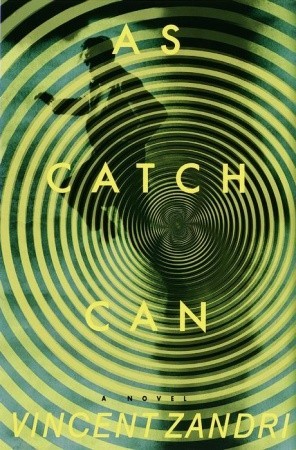So I've had this non-fiction idea for a some time now. It originally started out as an article but ran way too long for publication in any journal or magazine, which signaled to me that it should be a short book instead. Part memoir, part confession, part instructional how-to, The Hybrid Author Mindset will offer writers a no bullshit peak at what it's like to be a full-time professional writer who publishes independently and traditionally.
It begins with my scoring that quarter-million dollar deal I've spoken so much about in the late '90s (plus lucrative deals that have followed) and all the stupid mistakes a young early thirty-something piss-and-vinegar-filled young man can possibly make to screw the deal up, not to mention his love life. But it also busts through the publishing myths, such as advances. Think a $100K advance is a big deal? Think it will save you from the poor house? Think again.
Here's an excerpt from the The Hybrid Author Mindset that just might rattle your cage:
So
you finally nailed the big contract. Your agent just called, all out of breath
and beyond excited. She can hardly wait to tell you that you have been offered
$100,000 for a two book, hardback, soft, eBook, and audio world rights deal.
You’re about to become the darling of New York City and the talk of the town.
You’re do excited, you scream! All your office workers become so alarmed they
think someone has died. But the only thing that’s died is your need for a day
job. Everyone is so excited for you they take you out for drinks at Happy Hour.
So
here’s what happens over the course of the next few months. You sign the big
contract. In turn, your agent sends you the signing portion of the advance.
Since this contract is for $100K that means it’s $50K per book. The signing
portion of the first advance might be $25,000. That sounds like a lot and it is
a lot. But after the agent takes her 15% you are down to $21,250. Next in line
is Uncle Sam and his cut which, if you have a good accountant and get lucky,
might be 25%. Now you’re down to $15,937.50. Okay, still not bad. But
conservatively speaking, if it costs you $4,000 per month to live, you’re going
to run out of money in just little bit shy of four months. If you have a
savings put away, you’ll have to start digging into it. If you don’t have a
savings, you might have to start thinking about asking your boss for your old
job back. But you would rather hang from the ceiling by your fingernails than
do that. You’re about to be a mega bestseller. Everyone thinks you’re a major
success, even before the book is released. You have your pride to think about.
Plus
you have another $25K coming for the first book, right? So what’s to worry
about? You pull out the credit cards and cover yourself until you get the next
round of monies. Easy Peasy. That next round of cash comes in say, six or eight
months down the road when you deliver your revised manuscript. If…the important
word is IF here…your revised manuscript is accepted, you will receive the
Delivery and Acceptance portion of your first advance. Let’s say it’s $12,500. After
you do all the math you’re left with about $7K and change. That might last you
two months if you stretch it out. It most certainly doesn’t cover the credit
cards you’ve been racking up. But you’re stubborn and you look forward to the
next and final portion of your advance which will arrive on publication day…
…four
months later.
Okay,
so it’s the big day you’ve been waiting for. Publication day. You just got a
nice check for $12,500 minus the agent’s fee (You’ve decided to forgo Uncle
Sam’s portion on this one, because you’re book is going to be a bestseller and
you’ll earn out the initial $50K in a matter of weeks when the book lands on
the New York Times bestseller list). You have a check in your pocket for
$10,625 and even if your credit card balance is more than that (and don’t
forget the back taxes), you feel on top of the world. Your author copies
arrive, you take a ton of selfies for Facebook and Instagram, you collect a ton
of “likes”, you do a couple signings in your home town, and maybe, just maybe
if you live in proximity to NYC, you do a signing at the B&N in Union
Square. The reviews come out and in general they are very kind. Maybe you
didn’t get the New York Times review you were dreaming of, but you did get one
in People and Entertainment Weekly. In a word, you are a rock star.
Then
something happens…The Big Yawn.
Your
book doesn’t make the New York Times bestseller list. It doesn’t even make the
USA Today bestseller list which is easier. But it does make several Amazon
lists which is encouraging, or so your editor tells you over the phone. The
troubling thing however, is that as time goes on, you notice your conversations
with both your editor and agent are becoming shorter and shorter. They don’t
seem to be as emotionally invested as they once were. It’s troubling because
even before your second book in the contract comes out, you realize you
desperately need another very big contract in order to get yourself out of debt.
You
go to work on the next novel. You write frantically and finish it in record
time. You hand it in to you editor. You don’t hear from him for weeks, months.
You email him and your agent incessantly. Finally, the editor emails you back.
He says he’s read the book and “likes” it. However, seeing as it looks like
you’re not going to earn out the first half of your advance, they are going to
forgo the hardback publication and go straight to mass market paper and eBook.
You feel your heart drop into your stomach.
The
year goes buy and you receive the balance of your $100,000 contact, or $50,000.
After your agent takes what he’s owed, you make the horrible decision to keep
the entire $42,500 since you’re in such debt you can’t possibly pay the $10,000+
plus federal and state tax bill owed. As it is, you already owe more than $5K
to the IRS from the previous advance check.
You
call your editor. He takes the call which is encouraging. You tell him about
your next book project…a high concept thriller. But all you get is dead air,
which is not only discouraging, it is downright disconcerting. He calmly
explains to you that it’s probably in your best interest to pursue another
publisher for your next book project. He hangs up. You’ll never hear from him
again.
After living on the $42,500 for the year, you are dead broke, in serious debt to the credit card
companies, and the IRS. Your agent and editor don’t return your phone calls or emails. You don’t
have a job or any means of income. You’re a good if not great writer with two books to your credit,
yet you have a very tough road ahead of you.
The point to the book, other than to inform while entertain, is to encourage authors to build up both a
traditional list as well as a very healthy indie list. That way, when one media outlet goes dry (or goes belly up, or parts ways with your editorial staff, or just plain becomes disinterested)...and
believe me, it will go dry at some point...you have other outlets to rely on. Take it from one who
knows, those authors who don't treat this game like a business are doomed to failure. Just ask James
Patterson. He's made a fortune by treating authorship like a business.
Methinks you should too.
Get The hybrid Author Mindset.
WWW.VINCENTZANDRI.COM







